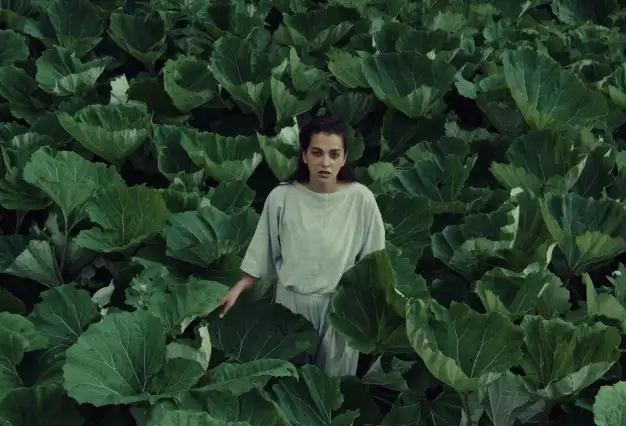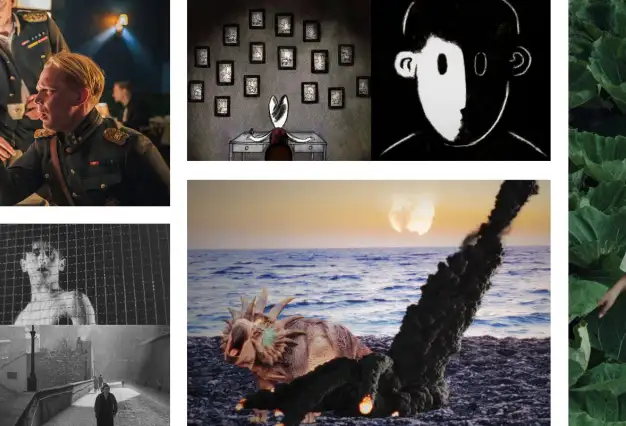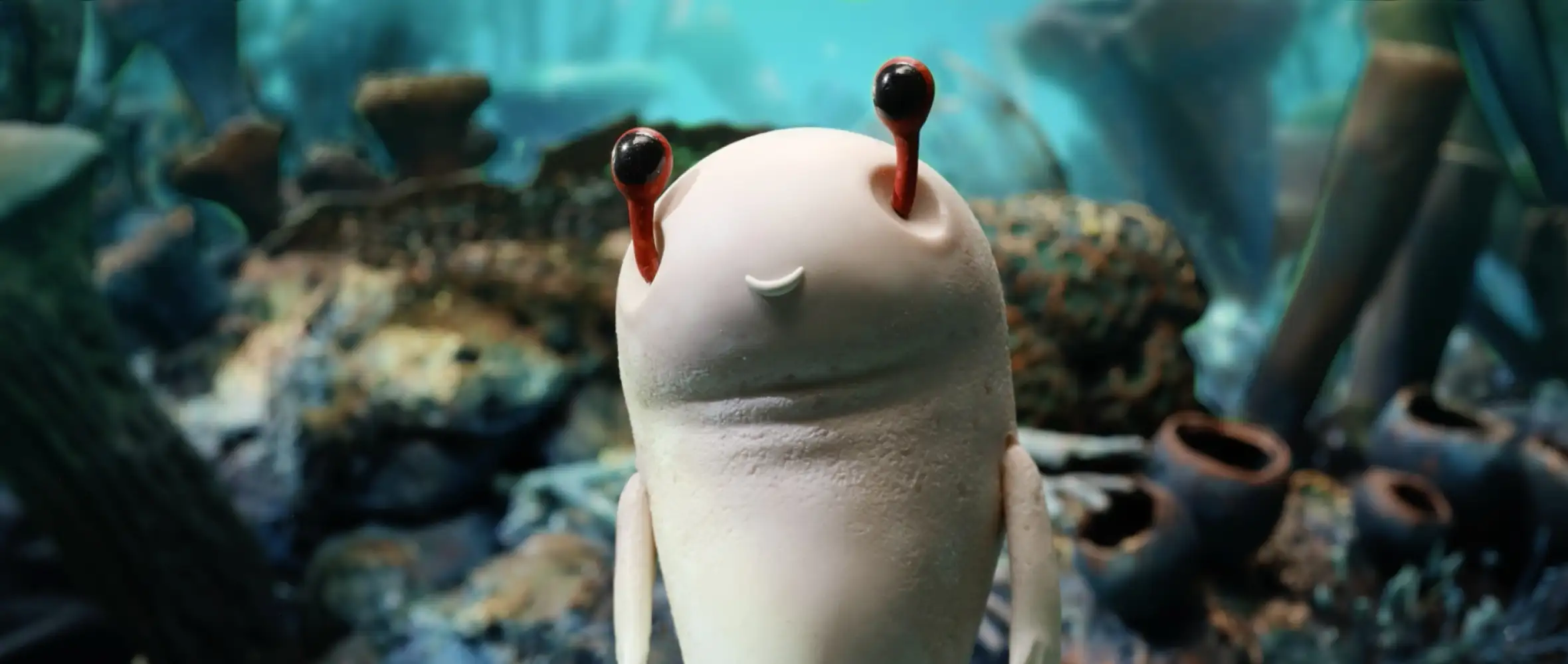
01 June 2025
Czech animation holds its ground at Annecy
Czech animation holds its ground at Annecy

The 2025 Annecy International Animation Film Festival reaffirms the Czech Republic’s position within the global animation landscape. Building on a notable presence in 2024, this year’s line-up spans competitive titles, commissioned works, graduation films, and industry showcases. From character-driven stop-motion to politically resonant animation drama, Czech filmmakers continue to explore new visual languages while expanding the country’s long-standing tradition in the medium.
by Martin Kudláč for CZECH FILM / Summer 2025
Visions below the surface

Two Czech short films will compete in the Official Short Film Competition at this year’s Annecy International Animation Film Festival. The first is 9 Million Colours, the latest work by animator Bára Anna, whose previous work includes Love Is Just a Death Away, a stop-motion film centred on a parasite inhabiting a decaying dog’s carcass. That film received wide festival recognition, winning the Best Student Animated Short and the Audience Animation Award at the Palm Springs ShortFest, Best Animated Short at Figari Film Fest, and multiple audience and jury prizes at festivals including Tricky Women, the Leeds International Film Festival, and Premiers Plans Festival du Film Européen. It was also shortlisted for the BAFTA Student Film Awards. Bára Anna reteams with production company Bionaut and producer Jakub Košťál in 9 Million Colours, which the animator describes as a “stop-motion underwater musical.” The project was developed through the Animation Sans Frontières workshop and has been presented at industry platforms such as the Animarkt Pitching Forum and the CEE Animation Forum.
The short 9 Million Colours combines puppet animation with 3D technology to depict a vibrant underwater world seen through the eyes of Fran, a curious mantis shrimp, and Milva, a blind deep-sea fish. The piece adopts a distinctive approach to stop-motion, intertwining a story of unlikely companionship with an exploration of perception and sensory experience. Fran, gifted with the ability to perceive an exceptionally wide spectrum of colours, contrasts with Milva, who navigates her environment through instinct and survival. Their evolving relationship challenges the limits of their respective worldviews as Fran attempts to share her vision of the ocean’s unseen dimensions with Milva. Musical elements are woven into the story, transforming the traditionally silent underwater setting into a rhythmically expressive space where bubbles and soundscapes take on narrative significance.

The second Czech co-produced short competing at Annecy is Atomik Tour, produced by MAUR film in collaboration with the French studio Vivement Lundi !, which produced Jonas Poher Rasmussen’s acclaimed ani-doc Flee. Directed by Bruno Collet, whose previous short Memorable received an Academy Award nomination for its portrayal of Alzheimer’s disease, Atomik Tour focuses on the unsettling phenomenon of dark tourism. The film centres on a young YouTuber documenting his visit to the irradiated zone of Chernobyl, his presence unwittingly disturbing the lingering spirits of the disaster’s victims. What begins as a contemporary ghost story evolves into a reflection on the ethics of filming sites marked by trauma, drawing from the conceptual framework of artist Shahak Shapira’s Yolocaust project. Inspired by Shapira’s critique of performative behaviour in historically sensitive locations, Collet reframes the narrative as a study of memory, spectacle, and the commodification of tragedy.
Production on Atomik Tour is split between France and the Czech Republic, with puppetry, shooting, and compositing taking place in Rennes, while set construction, music, and sound design are carried out in Prague. Collet aims to evoke a surreal atmosphere that mirrors the layered history of the Chernobyl exclusion zone, using animation to probe the ethical complexities of its status as both a site of catastrophe and a destination for tourism. The film adopts a restrained, observational tone as it interrogates the uneasy relationship between remembrance and voyeurism in the digital age. Czech cinematographer Jaroslav Fišer, who shot Florence Miailhe’s The Crossing, served as director of photography.
Drawn from experience
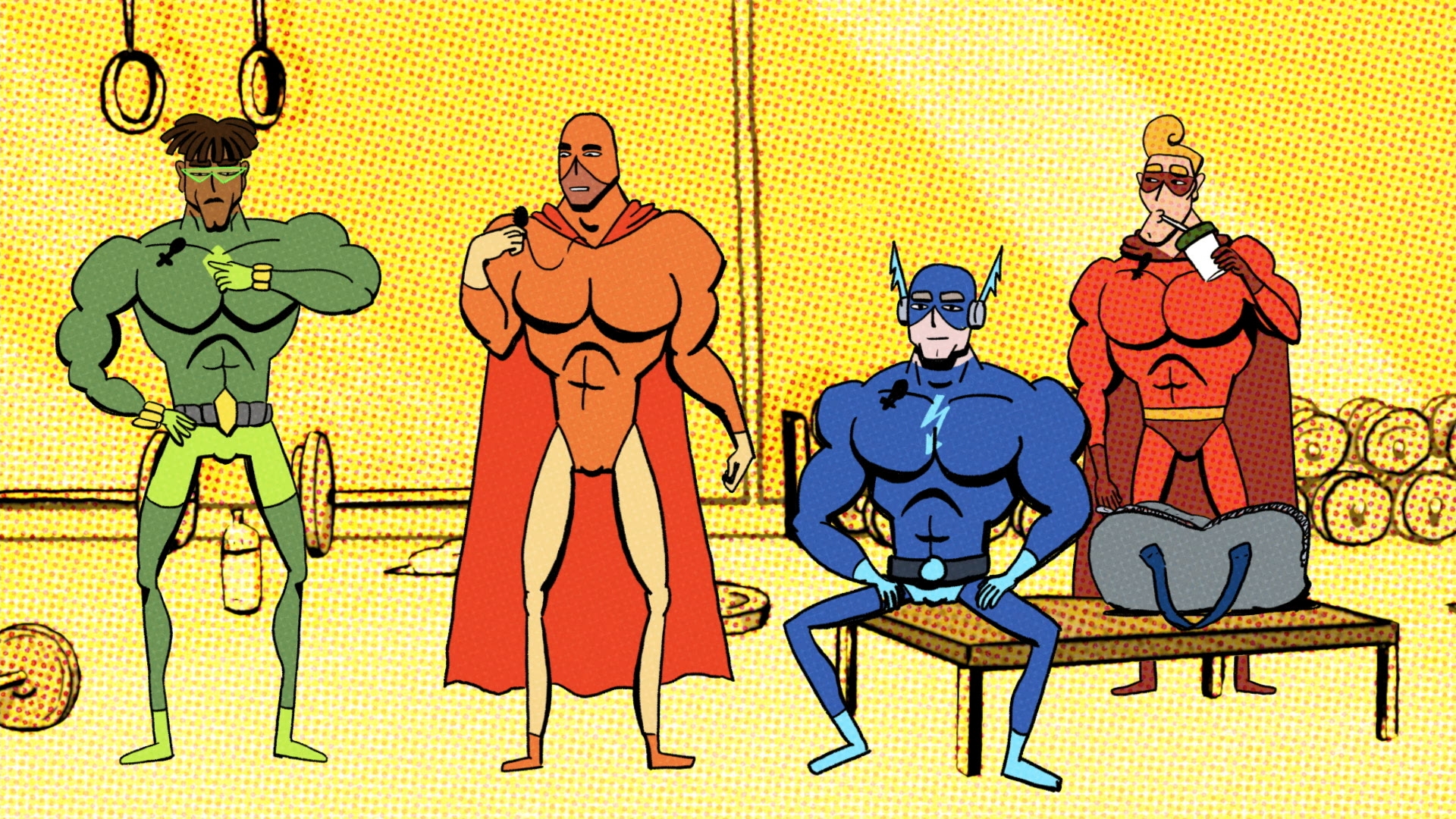
The Graduation Films competition at Annecy will welcome Better Man, a 2D ani-doc short by emerging Czech director Eliška Jirásková, produced by FAMU. Currently pursuing a bachelor’s degree at the school’s Department of Animated Film, Jirásková has already completed two short films during her studies. Better Man investigates the relationship between bodybuilding and body image through the lens of three men who have turned to fitness as a response to past traumas and self-doubt. Drawing on reportage-style interviews, the film foregrounds the subjects’ personal stories, shaped by experiences of bullying, family expectations, and domestic violence, while exploring their ongoing struggles with self-worth. Visually, Better Man employs a comic book-inspired aesthetic that references the hypermasculine archetypes pervasive in popular culture. A handheld camera animation technique adds to the immediacy and emotional proximity of the storytelling. Though punctuated with moments of levity, the film engages earnestly with the cultural pressures surrounding masculinity and the psychological dimensions of self-improvement.
Also screening in the Commissioned Films section is Očima Franze Kafky: Mezi obrazem a jazykem, a short animated spot created by Hanna Palamarchuk, a student at the Academy of Art, Architecture, and Design in Prague. Commissioned to promote an exhibition marking the centenary of Franz Kafka’s death, the film reflects on the writer’s relationship with visual art and the broader cultural context of his time. Palamarchuk’s 20-second piece employs a mix of cut-out animation and 2D computer techniques to evoke the multisensory environment of Kafka’s Prague.

The Contrechamp Competition will feature Tales from the Magic Garden, a portmanteau animated film that premiered earlier this year at the Berlinale, co-produced by MAUR film. Adapted from the stories of Czech writer and playwright Arnošt Goldflam, the film interweaves magical realism, satirical humour, and the distinct poetic awkwardness characteristic of Goldflam’s work. The story follows three siblings spending their first weekend alone with their recently widowed grandfather. As they navigate this unfamiliar dynamic, Suzanne begins to fill the household with imaginative stories, echoing the tradition once upheld by their late grandmother. Through these tales, the children reconnect with their grandfather and rediscover the transformative power of storytelling. The film is a collaborative production involving teams from the Czech Republic, Slovakia, Slovenia, and France. Drawing on the Czech Republic’s longstanding puppetry tradition, the film employs handcrafted puppets alongside contemporary animation techniques.
Last but not least, the ever-evolving immersive programme at the Annecy IAFF will have its first ever Czech contribution – Fragile Home by Ondřej Moravec and Victoria Lopukhina, which premiered in the Venice Immersive section in 2024 and will be screened in the VR – Short films category in the competitive Official Selection in Annecy.
From resin to regime
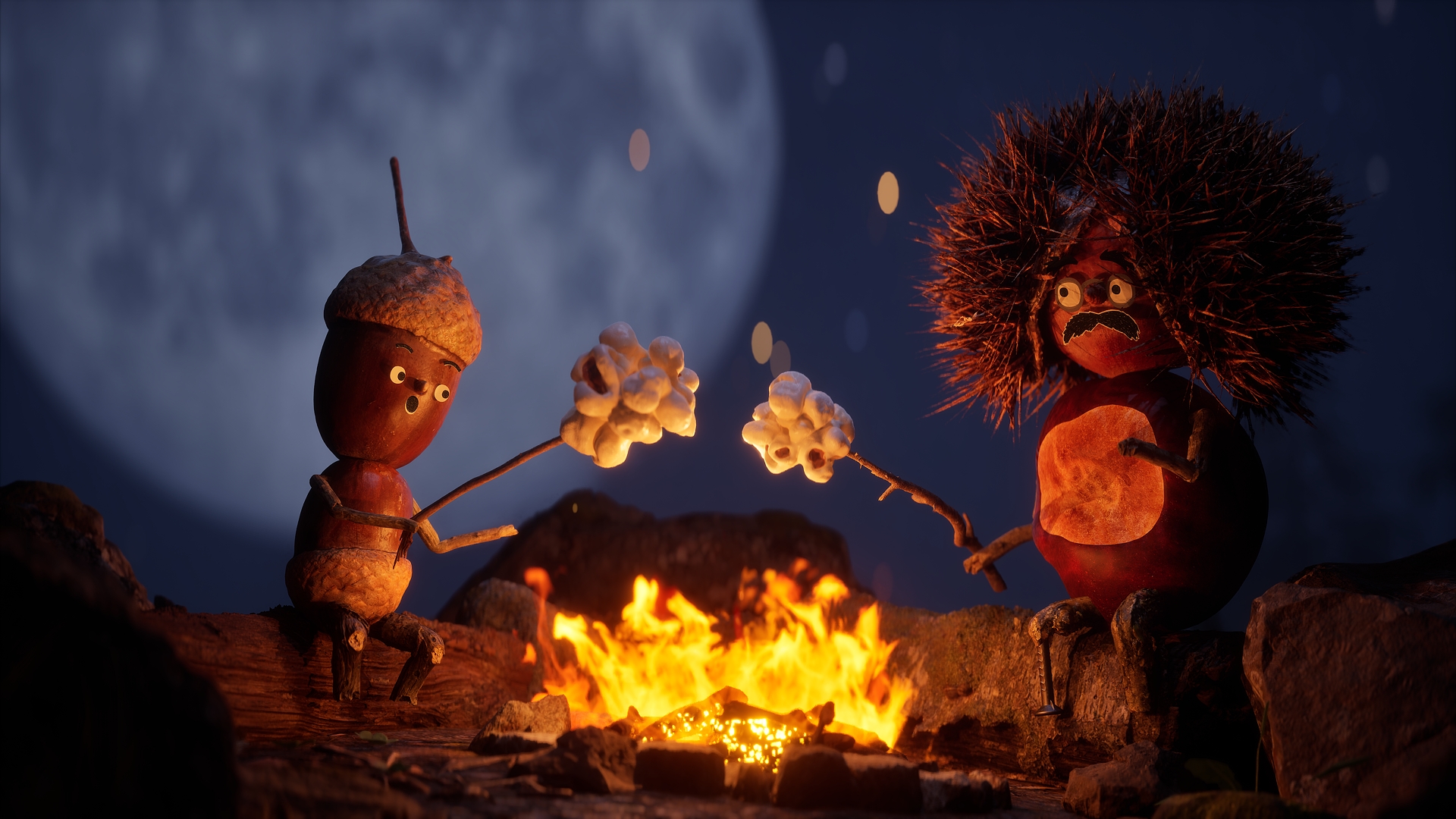
At the International Animation Film Market at Annecy, two Czech animation projects have been selected for the Mifa Pitches, a key industry platform spotlighting original animated works in development. Widely regarded as a launchpad for emerging talent, the Mifa Pitches provide creators with the opportunity to present their projects to a global audience of professionals and decision-makers.
The first project is Acorn’s Adventure, an animated feature by Filip Mašek slated for release in 2027, which follows Quido, a boy made entirely of acorns, on a journey of self-discovery in the fantastical village of Resinland – a world imagined by children where every inhabitant has a predefined role. As the village’s vital resin supply comes under threat from a group of mysterious thieves, Quido, eager to prove his worth, falsely declares himself the hero and sets out on a quest to save his community. What unfolds is a reflection on identity, self-worth, and the complexity of growing into one’s role when the path forward is uncertain. Visually shaped by 3D animation using Unreal Engine, the film is produced by Pure Shore, whose animated short Stone of Destiny premiered at this year’s Berlinale, in collaboration with moloko film and Fabian&Fred. It has been developed with the involvement of both Czech and international creatives and supported by Creative Europe MEDIA. Its inclusion in industry platforms such as Animation Production Days 2024 and the Young Horizons Industry – Talent Programme further underscores its potential to engage audiences across generations.

Another Czech project is The Northern Star, an animated political drama that follows the emotional journey of Polaris, a 17-year-old North Korean refugee adjusting to life in South Korea. The film is co-produced by the Czech studio Hausboot and France’s Les Films du Cygne, whose previous collaboration, Even Mice Belong in Heaven, premiered at Annecy in 2021. Based on the nonfiction book of the same name by Czech Koreanist and author Nina Špitalníková, the story examines the psychological and moral reckoning Polaris undergoes as she confronts her past role as a propagandist for the regime she escaped. Through her experience, the film explores questions of guilt, indoctrination, identity, and the personal cost of freedom.
Directed by Eléa Gobbé-Mévellec, co-director of The Swallows of Kabul, a film screened in Un Certain Regard at Cannes, the recipient of the Gan Foundation Award at Annecy and nominated for both the César and European Film Awards, The Northern Star utilises a stylised 2D aesthetic to highlight the dissonance between Polaris’s former life in the oppressive, monochromatic landscape of North Korea and her new, chaotic existence in Seoul. The animation serves as a visual framework for Polaris’s internal conflict, contrasting two ideological worlds while tracing her search for autonomy and meaning. The screenplay is penned by Czech writer and director Milada Těšitelová. Backed by the Czech Audiovisual Fund, Creative Europe MEDIA, and Région Sud, the film is slated for release in 2029. Vladimír Lhoták, the film’s Czech producer, sees The Northern Star as part of a growing lineage of animated works grounded in real events and with strong humanistic overtones, alongside films such as Waltz with Bashir, Another Day of Life, and Flee.


